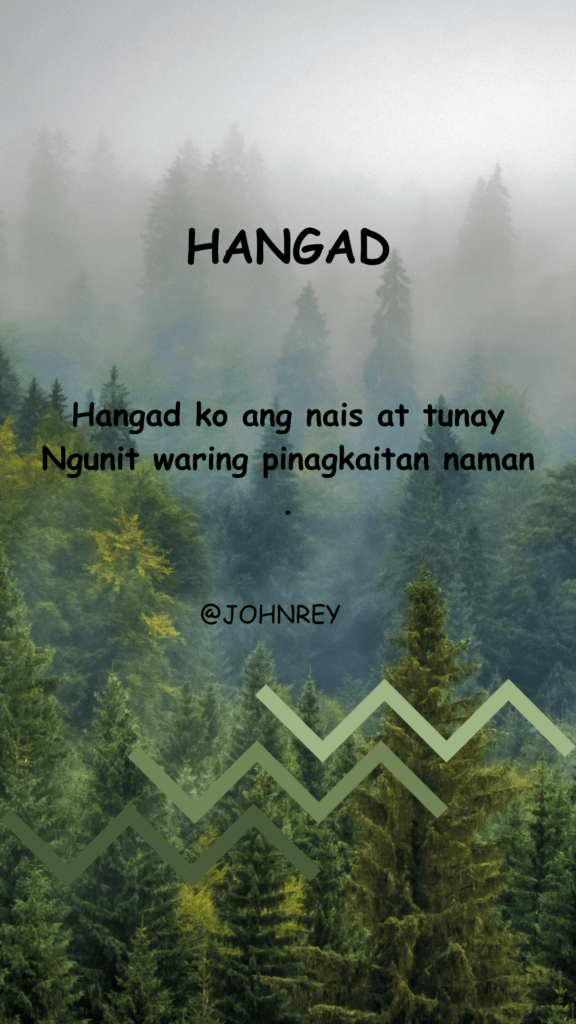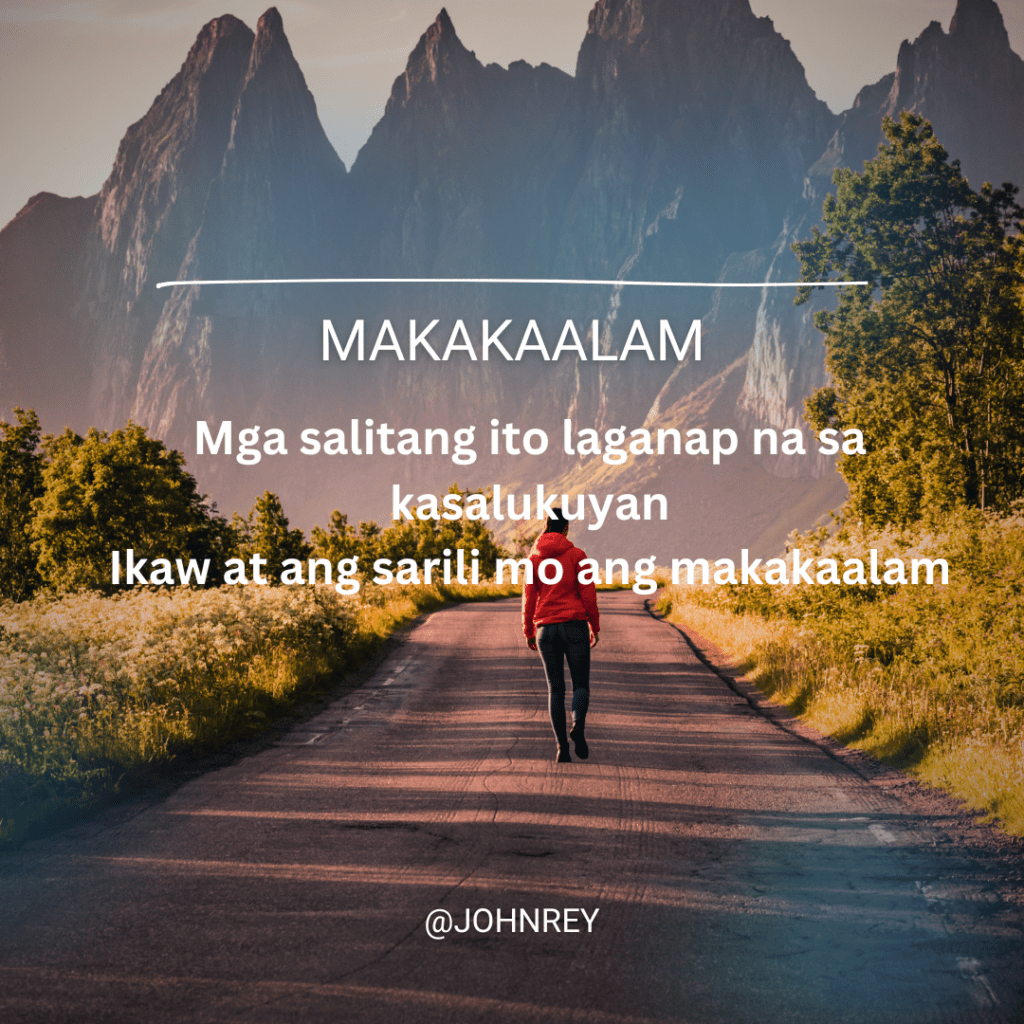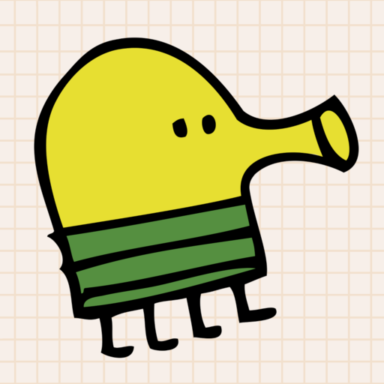Bruno Spoerri (*1935) is a saxophonist, composer, author, and a pioneer of electronic music in Switzerland - he co-founded the «Swiss Society for Computer Music» and was the co-director of the «Swiss Center for Computer Music» between 1985 - 2000. (see CV). For our research project Cult-Sounds we interviewed Spoerri in his studio in Zurich and asked him about his ways of working with synthesizers, virtual instruments and samples. He tells us in detail why he loved the old analog synthesizers, how he «fucked up» a performance at the Montreux Jazz Festival, why he laughed at Kraftwerk first, and much more. In 2015 Spoerri won a lawsuit against rap superstar Jay Z who had sampled from Spoerri’s 1978 piece «On the Way» without asking for permission or giving credit. See also his latest releases on Everest Records. Listen and watch to glimpses of the interview, or read the full interview below.

Bruno Spoerri in his studio in Zurich (Photo: Thomas Burkhalter)
Podcast (excerpts from interview)
Video (excerpts from interview)
Click here to view the embedded video.
Text (full interview)
Zurich, April 11th, 2015
My name is Bruno Spoerri. I’m a Jazz saxophone player, arranger, composer. I did a lot of film music and … well … I’m one of the first ones in switzerland to use electronic instruments.
What is or was your favourite synthesizer?
Oh, that’s difficult to say because during the years there were many favourite synthesizers. Of course in 1971 I had the huge «Synthi 100» by EMS that was in a way a fantastic thing. I’m happy that I don’t have it anymore, because I constantly had to repair it, update it and so on, it was so big, too, so more and more it was a nuisance to use it. Perhaps the favourite synthesizer was the «Prophet 5» by Sequential Circuits because this really was a flexible instrument that I could really play and that I could really program too and it had so many interesting sounds, so I loved it. Then the third one, I would say, was the «Arp Odyssey». That was one of the very early analog synthesizers, but it was a very flexible instrument, you really could improvise sounds with it, within seconds you could change to another sound, you could make noises and so on, so I really loved it. I think these were the most interesting, the most flexible things I’ve ever had.

The Arp 2600, a favorite synthesizer of Bruno Spoerri (Photo: Thomas Burkhalter)

The EMS synthesizer in the atelier of Bruno Spoerri (Photo: Thomas Burkhalter)
Behind you we see the old EMS-Synthi VCS-3, what about this one?
Well, of course, you see I still have it and I wouldn’t give it away, but on the other hand it is a very limited instrument of course. But I still use it and I can do fantastic things with it, because it has some very special sounds, it has some possibilities that many modern synthesizers don’t have and … another thing is, I changed a lot on this synthesizer. I made sort of presets, sort of special connections that the original instrument didn’t have. So of course it is much more flexible than it was 45 years ago.
But we don’t see a „Minimoog“ in here … did you ever own one?
Yeah, yeah I had a «Minimoog», I had a «MicroMoog», but I never had a big Moog because when I was interested in the first synthesizers, it was about 1967, I tried to buy one but it was so expensive then, the dollar was almost five francs then, and the smallest Moog synthesizer was about 10’000 dollars, so I really couldn’t afford it and then, later of course, it was no longer necessary to have a Moog.
Did you ever use presets working with synthesizers and machines?
Yeah, of course, I used a lot of presets. The first synthesizers didn’t have any presets, so the only thing I had that was sort of schematic, that was sort of ‚cook book’. They had pictures if you connect this with this you could do this … but if you did that the second time it didn’t work , because these instruments were not stable. So if it was a little bit hotter, a little bit cooler they reacted in a different way, that was one thing, and so you couldn’t recreate a patch accurately. I even once had the experience that I had made a big patch and the next day I wanted to change little bits in this patch and I couldn’t recreate the patch, I couldn’t find out what I did the day before. And then, I think it was about 1977 or 78, the first analog synthesizers appeared where you could store the patch digitally. That was the «Oberheim» the first one and the «Sequential Circuits». From then on I used a lot of presets because when you worked commercially in the film music you never had time. You never had time to figure out a new sound. So I used presets but very often. I changed them a little bit or I used them not in the normal way, perhaps not in that octave range that they were meant to be. But also, most of these synthesizers had 100 or more presets and of these 100 perhaps I could use 10, and the rest I thought they were not usable.
That’s what Brian Eno often said, that you needed synthesizers that only had 6 or 8 sounds, this would be sufficient for everybody. Would you agree on that?
In a way yes, but of course people don’t have the same 6 sounds that they like, so I think that we need to have this variety, because these are intelligent people who made them and they used it for something. But then you have to find out which ones are the sounds that you can use, that feel right for you.
The keyword now is «new sounds». How did you develop new sounds if you didn’t use presets? How did you program, how did you get to new sounds?
In either case not with a system. When I wanted a new sound I think I never tried systematically to find a new sound. Normally, it was like this, that I tried something and then I suddenly discovered this sound could be something that I could use and then I began to change it until it was exactly right. And very often I even found one sound by chance and the sound gave me the idea for a whole composition. So in the beginning it was a strange sound and then I played around with that sound and then it gave me the idea ‚well, I could do this and that tune with that sound.
Do you have one example where it worked like this?
I can play you filmmusic that I made, for instance for an experimental film, and then I wanted something very repetitive and a sound that mixes well with a train sound and it should have something a little bit heavy. So I found a preset, I think it was on the «Yamaha Sound Canvas» that was a Chinese sound, a Chinese instrument and I used that two octaves lower than it was meant to be and that gave me exactly the sound that I wanted. So I developed a whole composition out of this one sound.
The next keyword would be the faultiness of technology. Do you think that coincidence and mistakes are important components of sound innovation?
I’m mostly an improviser, I come from Jazz and I think the most important things in improvising are the mistakes. I think, many of the innovations and of the ideas that happen in improvisation come from the things that you didn’t want in the beginning. And when I improvise and I do my computer music things in concert, I hope for mistakes, I hope that something happens that throws me out of the routine. Because I think if it doesn’t do that and I get into a routine it gets boring. I always must have some input from another musician, who does something unexpected or from a machine, who does something unexpected, or from something that happens in the room, somebody whistling or a strange sound coming, that gives me the idea to go on.
Could you give us an example where one of your machines was broken and out of this you developed a new sound?
Oh yeah, for instance that was in the early 70s. I was invited to play at the Montreux Jazz Festival in the afternoon. There was an afternoon concert in plain air in the sun and it became so hot that these ARP synthesizers began to produce strange sounds … it was too hot for the synthesizer … it made distorted sounds, it made crazy sounds and it was a fantastic performance. Or I know of other people like the musicians from Can that the best sounds they made came out of a broken organ.
That’s what I just read about the Kraftwerk, when they were playing in the States, that they had to plugin and switch on all the machines in the afternoon before playing in the evening so that the temperature of the Moogs and the rhythm-machines was just at the right point. Otherwise they would have been detuned and out of rhythm.
Yeah, these events make it interesting.
Let’s talk about pop music a little bit. How did the sound of pop music change in the last decades?
I’m not an expert in pop music. I think the gap between commercial pop music and experimental pop music got wider and wider. If I hear for instance new songs, I think most of them are boring. Last saturday I listened to that ‚Swiss Talents Show’, the songs that they sung, consisted of three notes or four notes, it was so boring. I wished there was a Gershwin or an Irving Berlin, somebody who created real melodies.
But what about the sounds? How did they change in the last decades? Are they boring too?
Well, perhaps not especially in pop music but I hear it mostly in film music. In film music you always hear these pad sounds. There is a pad sound and then you hear a rhythm and a short melody, everybody uses that. That’s one side, and on the other hand I hear so many very, very interesting things that are made by young musicians. Some weeks ago a guy from Holland was here and he brought me this LP and he had such interesting sounds. I met a young drummer – Julian Sartorius, I played with him and he had so many very interesting new sounds that he uses and that he used in recordings too. But that’s all music that is not commercial. That part of new music is in a corner. But I think the real innovations come from there.
From your experience working with these synthesizers and praising also the flexibility of some of them and now may be working more with sound software – are there similarities or is it completely different?
If you use virtual instruments for instance, all these instruments in the computer, it’s much more difficult to change two or three parameters in the same second. With a real synthesizer you have two hands and you can go around and try many things in a very short time. If you want to do that with a virtual synthesizer you have to use very complicated interfaces to do that, it’s not as haptic, you can’t touch it anymore and that makes it very difficult to find really new things. Perhaps you can develop virtuosity in that, that’s possible, but there are so many things that are prepared by the programmers that lead you in one direction, that it’s very difficult to get out of that.
It needs a lot of practice in playing like you needed to practice playing the saxophone virtuosically…
Perhaps the people are less patient, they are used to having a new computer, a new Ipad, a new Iphone, within seconds you can find something, it is so easy to create a decent sound, because all the sounds are good now, it is almost impossible to make a bad sounding sound. Everything is so perfect, so it gets more difficult to get the dirt into your music. I think music lives from that, from the imperfect things.

Max Patch of Bruno Spoerri for controlling his various instruments
Now we were talking about the bad sides of virtual sounds and virtual instruments. What are the chances or the opportunities of virtuality?
The biggest chances in new technologies is in sampling, that you can go out into the nature, go somewhere and you hear a sound and then record it and then think ‚ «out of that I can make music». For instance when I was in Biel, we lived in a small bed&breakfast and they had a garden door that squeaked in a special way and I recorded it and I still think I can make a piece out of that. That’s interesting, you can use every sound that you find and make something out of it, it gives you an idea to do something.
Do you feel with sampling, (not on the law side, this story we know) how important is the origin of the sample for you? If it is a garden door in Biel, does this have anything to do with the piece in the end or is the sound completely free?
It can have something to do with the piece in the end. For instance I did one 10minute-piece that was about the house where we lived in the countryside, a house that I had to leave, and it was a sort of saying goodbye to the house. The door of that house made a very special sound and the metal stairs of that house made a special sound, so these things made me compose a piece that is very heavy with remembering that house, and then of course I used these sounds, so these sounds are very connected to the idea of the whole piece but there are other things. Other sounds that I use completely in another way that they were used in the beginning.
When we talk about sampling and you listen to songs from 1993 where people were using parts of other songs from the 70s, from the 60s, and used as a basis for their songs, is this a new art form of sampling and resampling and resampling music again and again?
Yeah, in a way it is. But I think sampling from existing music is a a development out of DJ’ing. But of course that was done before. Pierre Schaeffer for instance used piano sounds, small parts of existing music, so in ,musique concrète’ that was done too, and it was very fruitful, very interesting what they did with it. I think that’s a legitimate way to do new music as long as you don’t steal a whole part or steal something that is a really important part of the music. But of course there are sounds in existing music that could lead you to a new thing, I think that it’s very important that it’s possible to do that. Exactly as many composers used ideas of other composers.
When pop artists use drum loops for example and put them into their songs, how important is the sound of the drum loop – because it has a kind of patina existing from the tape machines from the studios from technology that wasn’t that far ahead – does it attract people that oldschool, oldfashioned drumloop is integrated in a new song?
I think it’s a sort of fashion-thing to use for instance drum loops from the 80s. This sort of Soul-Jazz-sounds, Herbie Hancock, Chick Corea, Eddie Harris’ sounds … I don’t know, well it was a sort of fashion for some time but I never thought that it was very interesting.
Why? What was the reason why you think it wasn’t interesting?
Well, it tried to recreate an old idea. I often had the impression that it was made better in the beginning, it’s a second hand music, it’s not as fresh, as interesting as the original was.
When you look to the future of music and when you’re here with your machines and software and saxophone, where do you see the greatest potential for innovation? Or where you want to go or where you want to create something new maybe just from your cosmos?
Well, you know I’m almost eighty so I don’t reinvent the wheel anymore. So I think what interests me is to go on in the direction that I’m doing for some years now, trying to develop the instruments that I use. A very strange mixture of very old ideas and new ideas. And I want to find out what I can do with these things, if I can develop that a little bit more, that’s the one thing that I’m doing. And the other one is just looking at the old things that I did many years ago and perhaps remix them, bring them up-to-date in a way, there are fragments, there are short pieces that I develop to longer pieces again or I cut out things that I don’t think that are good enough. So I’m working in two ways – one is trying really to improvise freely in the moment and the other one is just to redo my archive.
Then you have to be careful as well that you’re not a second hand musician as well, that the origin is better than the one…
That happens, yeah. I’m very often astonished how fresh the very old things sound if I hear them again. Because of course they were new then and they had a certain, yeah a certain part of innovation in it.
Could it be that people who sample parts of old songs that they’re doing a kind of … presenting a reference or admiring component that when you sample you refer to a certain period of music which you liked a lot and now you can’t do it anymore because the analog days are gone?
I think yes. There is a sort of virtual movement now … eh … there really are people who want to go back to the old times and of course they can’t go back because the … eh … the old machines are no more around, the old techniques are very difficult to use. I think there’s one studio in Cologne that still has the old … Stockhausen things for instance, there you can do that again. But perhaps you don’t have the time, that they had, because in these years they needed weeks and months to create some sounds and nobody has the patience anymore to do that so … eh … they tried in a way to recreate that feeling of the old instruments. But I don’t know if it is successful or if it is still only a fashion to do that.
It seems to be a fashion. I read about Dave Grohl from the Foo Fighters, maybe you know him, that he made a couple of his last recordings on tape machine… Also Max Martin in Stockholm, who produced Britney Spears and NSYNC and those kind of bands. He decided to say goodbye to his digital equipment and he’s recording on tape machine again, so does it seem to be at least a tendency to go back to this technology?
Yeah, there is a tendency, well at least a tendency to go back to vinyl and, yes it has something very interesting to cut a tape again with all the deficiencies that it has. I think the most important thing about that is if you use this old machines you need much more time. This gives you the possibility to rethink more what you do. I did one LP with Irmin Schmidt «Toy Planet» … all in all, that was in 1979/80, I think we had about 600 to 700 studio hours, so during one year he came for a couple of months and then he came back again and everytime we changed some pieces completely. We had a piece and we thought ‚it’s ok’ – one month later we listened to it and we found out ‚no we don’t like it anymore’. We began with parts of the original material again, put it together in a new way and I think this slow working helped to make a real good recording.
Click here to view the embedded video.
I mean now, the difference is maybe: we have all possible sounds that you want within a few mouseclicks from all over the world. What do you think this availability … what does it change for music making?
This possibility to have everything in one second … In the beginning, when you couldn’t handle a synthesizer it sounded horrible … Today it’s almost impossible to make horrible sounds, all sounds are good. Without any real musical idea, without any talent you can make music today that doesn’t sound too bad. That’s one of the big difficulties. But perhaps it’s the same in photography too. It’s allmost impossible to make a bad photo because the machines are so good. so in a way the level is much higher than before. In order to get to something that’s really valuable you must work more than before in a way … because of the normal standard is so easy to do. Sometimes I think that the less talented are very very often more commercially successful.
You had the chance to know people like Bob Moog, Wendy Carlos, Tom Oberheim, Dave Smith and so on … what do they stand for in your opinion?
When I met Bob Moog for the first time, Wendy Carlos, that was mid 70s, when I went to Frankfurt to the music fair and then met Tom Oberheim, Dave Smith … I first I thought these people were halfgods and they must be very rich and then I found out that they were all very committed people who always took risks; that they weren’t rich, that they always were in danger to go bancrupt. They had all very big financial problems, but they went on. They had always new ideas, they always tried to do something interesting, even if it failed. I think all these people had perhaps more failures than successes in a way, and I think that was fascinating. And they all had a very funny side too. I think I never laughed so much when I was for instance with people like David Zinovieff, the inventor of the EMS-Synthesizer or with Max Mathews. They were all very funny and had so many strange ideas, too. I think they were everything else than successful commercially interested people. They went their way. For instance Wendy Carlos had a big problem. She had new ideas, she wanted to do new things and everybody always wanted just «Switched-on Bach» from her. People were were fixed on something they once did and they wanted to go on to a new level and people didn’t unterstand that.
Click here to view the embedded video.
But it didn’t happen to you with «Switched-on Switzerland» … When did it happen to you?
It happened to me very few times. When I started to do film music I was the one who got commercial, the jazz musician who got commercial. Then I did Jazz-Rock, then all Jazz musicians came and said ‚Oh, now he is in electronics, he tries to get some money so he does Jazz-Rock’. Then I arranged for pop singers and for the Eugster Brothers so they said ‚now he is a Schlagerheini, he tries to have a hit’ and so on so they always … they put you somewhere. And from time to time it was difficult to get out of that.
What were the ideas of this the LP called „Switched-on Switzerland“?
Well, the idea of «Switched-on Switzerland» came of course from Wendy Carlos. I heard «Switched-on Bach» and then I had the idea: well, I must do something like that in Switzerland. And then, at that time I lived in Schlieren and just two houses away from a recording studio, and it was the recording studio of a sound engineer Walter Wettler and he was the one that really discovered the swiss folk music, the ‚Ländler’ music again. He was the one who went to Schwyz and recorded all these old people and in a way I think he was the father of the rediscovery of swiss folk music. He did all these records of the people that are known now. And I was not interested in folk music at first but just by chance I was there and he recorded some people from Schwyz and from Unterwalden and so on, and suddenly I found out, that this was a music that really swings, it was fascinating what they did, and so I began to love this music. So I think «Iischalte» came really from a love to do this music, not to commercially exploit it.
It’s an hommage, it’s not a parody, it’s an hommage?
Yeah, yeah, I really think it’s an hommage …
You just mentioned those people like Wendy Carlos, Bob Moog. Is there anybody that could compare to them now?
No, perhaps I don’t know so many of the younger people who are doing really new things. Of course I think it’s much more difficult to have new ideas because everything is done, so it’s much more difficult to have a revolutionary new idea and to find really new things. So I don’t know anybody who can compare, but perhaps that’s my age that I don’t know them, that I don’t find them.
How important is newness in music for you, in your opinion?
I don’t think that newness is important in music, I think that it’s important that you find a music that moves people, that you can bring something over to them, that they feel something when you make your music and I think that’s independent of the style, of the way of playing. And everything that can happen in a very simple song, that can happen in a very complicated orchestral piece. I think the means or the way you do it is not important, it’s important that they get the feeling from what your doing. And I think very often it’s the most simple music that moves people most. I remember when I was in Rio and Bahia when I saw just some kids playing with very primitive instruments, just some sticks or so … they made fascinating things, they really moved me. And on the other hand I remember concert with all technology and … nothing happened.
You were talking about Pierre Schaeffer and Bob Moog and composers, sound engineers and you mentioned the german scene with Irmin Schmidt and Can – what about Kraftwerk? Was it something that influenced you or how did you listen to it?
Well, Kraftwerk is a very special thing for me. When I first heard them I just laughed. I must really say it, when I first heard that, I said ‚that’s the music that I’m doing when I’m warming up my synthesizers in the morning’ and I didn’t understand that they had a completely different idea of music than I had. I came from improvised music, I came from Jazz and what they did was just the exactly the opposite of what I was doing. So in a way I must say I didn’t understand it. And now when I hear it after so many years I think they really had an original idea, they did something special that I didn’t understand back then. On the other hand it was contrary to everything that I loved and that I wanted to do. And I still wouldn’t like to do music like that.
You worked with Jazz, you worked with computers, there was a time where sometimes people said that because of computers the musicians got kicked out …
… of course
What is better about working with the computer than with a band? And what is worse? Or what are just the differences?
Both can be very boring. I once had a bass player in my band and when he played the solo the whole band sang the solo because he always played the same solo, so we knew in advance what he would do, so that was one thing … and then I thought some computer programs are much more interesting. And on the other hand you can do very, very boring things with the computers and with synthesizers. Well, that was for instance what I thought was boring in Kraftwerk – they had one sequence without any change. Many of these Krautrockbands, they had very, very repetitive things and they didn’t think of changing it a little bit. For instance in minimal music all the patterns are changing constantly, but in these old sequencer things, they had one pattern and this pattern went on and went on and went on without any variation, that was boring too. I think to write good music is not a thing of what instrument you use, it’s what you do with it. If you really have the impetus to try something new, and perhaps if you’re impatient enough that you think your own music is boring, now I do something new.
You worked so many years on these machines and software . Does one create a relationship to these patches and these presets?
I think there are some patches, some sounds that you develop a sort of attachment to. When I hear something … in some of my old film music I find that there are some sounds that I used again and again because I liked them. There was one bass sound in the synthesizer that I used always for a long time. I had one of the first digital drum synthesizers, the first Linn-Drum …
… the LM1 …
… LM1, yes. And I loved the sounds of excactly this drum machine, the patterns that you could do with that so … in a way of course you develop a sort of style with these instruments and then, after some time you have to leave it again because then after 2, 3 years that you used them you can’t use them anymore.
Bruno, thank you very much.
Thank you too.














